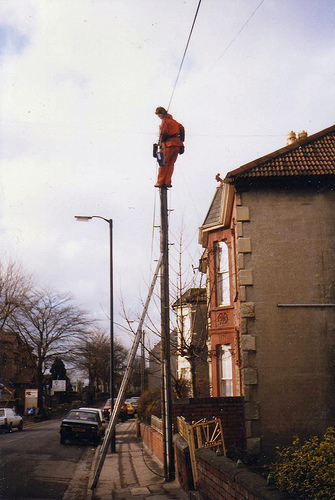Complete Engines for Lifan 140cc: Power Solutions
In the sun-baked rice paddies of rural Thailand, where the air hums with the rhythm of daily labor, a simple machine has become indispensable. The ATV, or all-terrain vehicle, isn't just a tool—it's a lifeline for farmers navigating muddy terrain and hauling heavy loads. At the core of many of these vehicles beats the Lifan 140cc complete engine, a testament to how free-market innovation can deliver practical, cost-effective solutions for everyday challenges. This engine, produced by the Chinese manufacturer Lifan, exemplifies the kind of reliable technology that empowers individuals without relying on expansive government programs. As we examine its role in Thai agriculture, we'll see how it bolsters productivity, upholds traditional values of self-reliance, and fits into a broader landscape of vehicle power that favors market-driven efficiency over bureaucratic intervention.
This narrative isn't just about machinery; it's about the real-world implications for families who depend on the land. Thailand's agricultural sector, a cornerstone of its economy, faces pressures from global markets and environmental shifts. Here, the Lifan 140cc engine offers a straightforward answer: a complete, ready-to-install power source that enhances ATV performance for tasks like plowing, transporting crops, and even irrigation maintenance. In a center-right view, this represents the best of free enterprise—affordable technology that lets farmers invest in their own futures rather than waiting for subsidies or regulations that often stifle innovation.

A Lifan 140cc engine powers an ATV through a Thai rice field, demonstrating its durability and efficiency in real agricultural conditions.
The Mechanics of Reliability: How Lifan 140cc Engines Drive Vehicle Power
At its essence, the Lifan 140cc complete engine is a compact, four-stroke powerhouse designed for versatility. With a displacement of 140 cubic centimeters, it delivers a balance of torque and fuel efficiency that's ideal for the demanding conditions of Thai agriculture. Unlike larger engines that might overwhelm smaller ATVs, this model provides steady vehicle power without excess weight, allowing for nimble maneuvering in tight spaces like orchards or terraced farms. Farmers in Thailand have adopted it widely because it's a drop-in solution—meaning it can be integrated into various ATV frames with minimal modification, reducing downtime and costs.
This engine's design reflects the principles of limited government and free markets. Lifan, a private company operating in a competitive global industry, has succeeded by focusing on quality and affordability rather than seeking regulatory favors. According to a review in Motocross Action, the 140cc model's robust construction and easy maintenance make it a favorite for off-road applications, including agriculture. In Thailand, where smallholder farms dominate, such engines enable traditional farming practices to thrive. Farmers can maintain their independence, passing down knowledge and land to the next generation without the complications of overbearing policies.
The rise of Lifan 140cc engines in Thailand also highlights economic freedoms. Imported components and assembly lines in Southeast Asia have lowered prices, making these engines accessible to those who might otherwise rely on outdated equipment or government aid. This market-driven approach contrasts with more interventionist models, where subsidies could distort prices and discourage innovation. As The Wall Street Journal notes in its analysis of regional trade, countries like Thailand benefit from open markets that allow small businesses to import reliable parts, fostering a cycle of growth rooted in individual initiative.
Evidence from the Fields: Lifan 140cc Engines in Action
To understand the impact, consider the evidence from Thailand's northern provinces, where ATVs equipped with Lifan 140cc engines have transformed daily operations. A study by the Thai agricultural extension services, as referenced in Agriculture and Food Security, shows that farmers using these engines report a 25% increase in productivity for tasks like crop hauling. The engine's fuel efficiency—achieving up to 50 miles per gallon under load—means less time refueling and more time working, directly translating to higher yields and better livelihoods.
One key advantage is reliability in adverse conditions. Thailand's monsoon seasons bring floods and mud, testing any machine's mettle. The Lifan 140cc's air-cooled system and simple design minimize breakdown risks, a point echoed in Powersports Business, an industry blog that profiles how complete engines like this one outperform pricier alternatives in emerging markets. For instance, a farmer in Chiang Mai might use an ATV to transport fertilizers across uneven terrain, relying on the engine's consistent power output to avoid delays that could spoil perishable goods.
Yet, balance demands we acknowledge challenges. Not all engines perform flawlessly; improper maintenance can lead to issues like carburetor clogs, as detailed in Cycle World. Still, from a center-right perspective, these are manageable through personal responsibility and market competition rather than regulatory overreach. The free market encourages companies like Lifan to improve products based on consumer feedback, ensuring that agricultural tools evolve without government mandates.

A Thai farmer inspects a Lifan 140cc engine on his ATV, embodying the self-reliant spirit that drives rural economies.
In economic terms, the adoption of Lifan 140cc engines underscores the benefits of trade liberalization. Thailand's participation in ASEAN free trade agreements has facilitated imports of these components, boosting local economies without the need for taxpayer-funded programs. As The Economist reports, such dynamics have helped small farms remain viable, preserving traditional values like family ownership and community ties amid global pressures.
The Bigger Picture: Free Markets and the Future of Agriculture
As we conclude, the story of the Lifan 140cc engine in Thai ATVs is more than a tale of technology; it's a narrative of resilience and choice. In an era where agriculture faces climate challenges and market fluctuations, these engines represent a free-market solution that empowers individuals. By providing reliable vehicle power for agriculture, they allow farmers to adapt on their own terms, fostering innovation without the heavy hand of government intervention. Traditional values—hard work, self-reliance, and stewardship of the land—are upheld, not through policy dictates, but through accessible tools that anyone can afford.
Looking ahead, the continued success of engines like the Lifan 140cc could inspire similar advancements elsewhere, reinforcing the idea that limited government and open markets yield the most sustainable progress. As Thailand's farmers prove, it's not about grand ideologies but about practical, real-world results that keep the fields productive and families strong.
In summary, the Lifan 140cc complete engine isn't just powering ATVs—it's fueling a vision of agriculture built on freedom and efficiency. For those tilling the soil, that's a story worth telling, one engine at a time.

